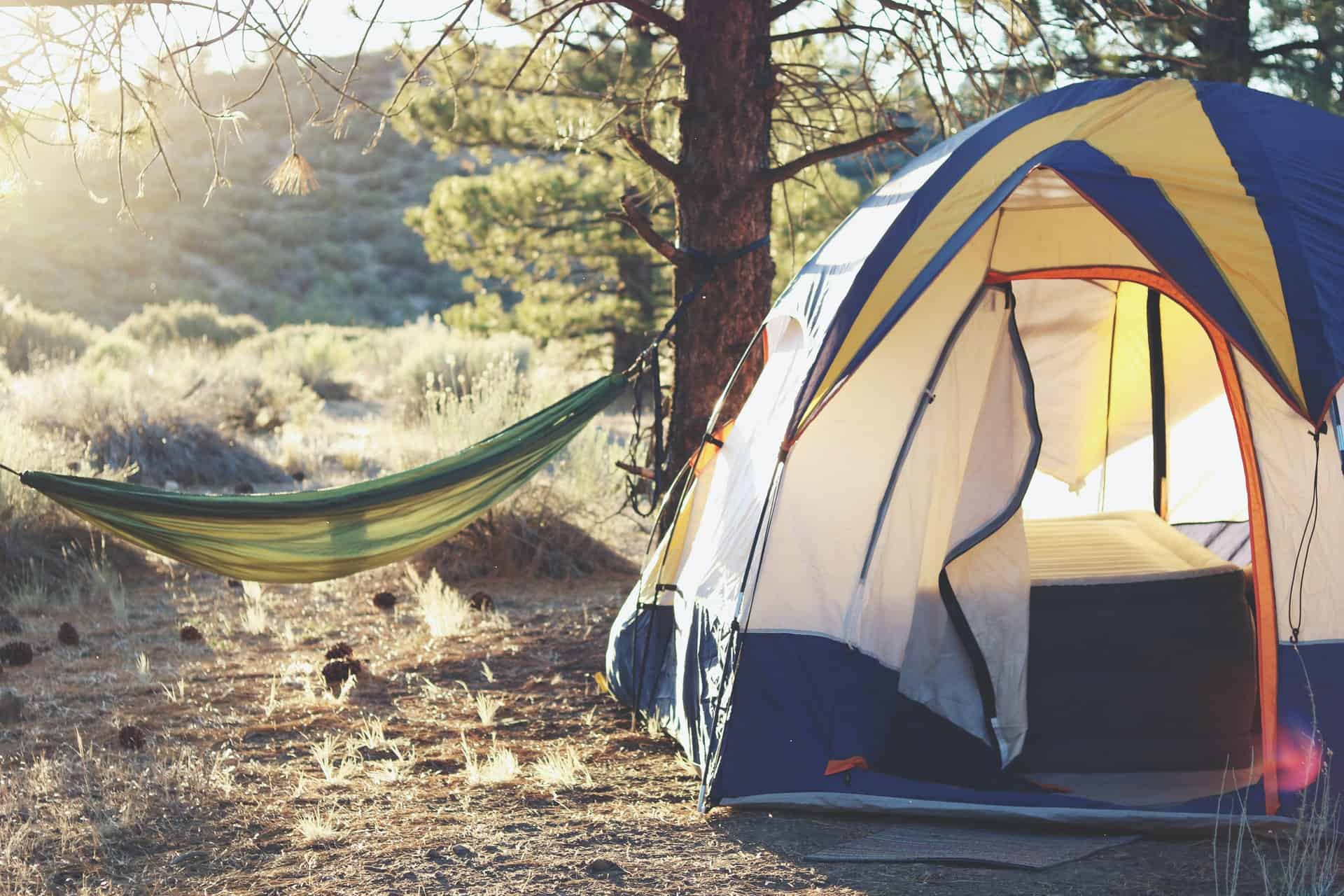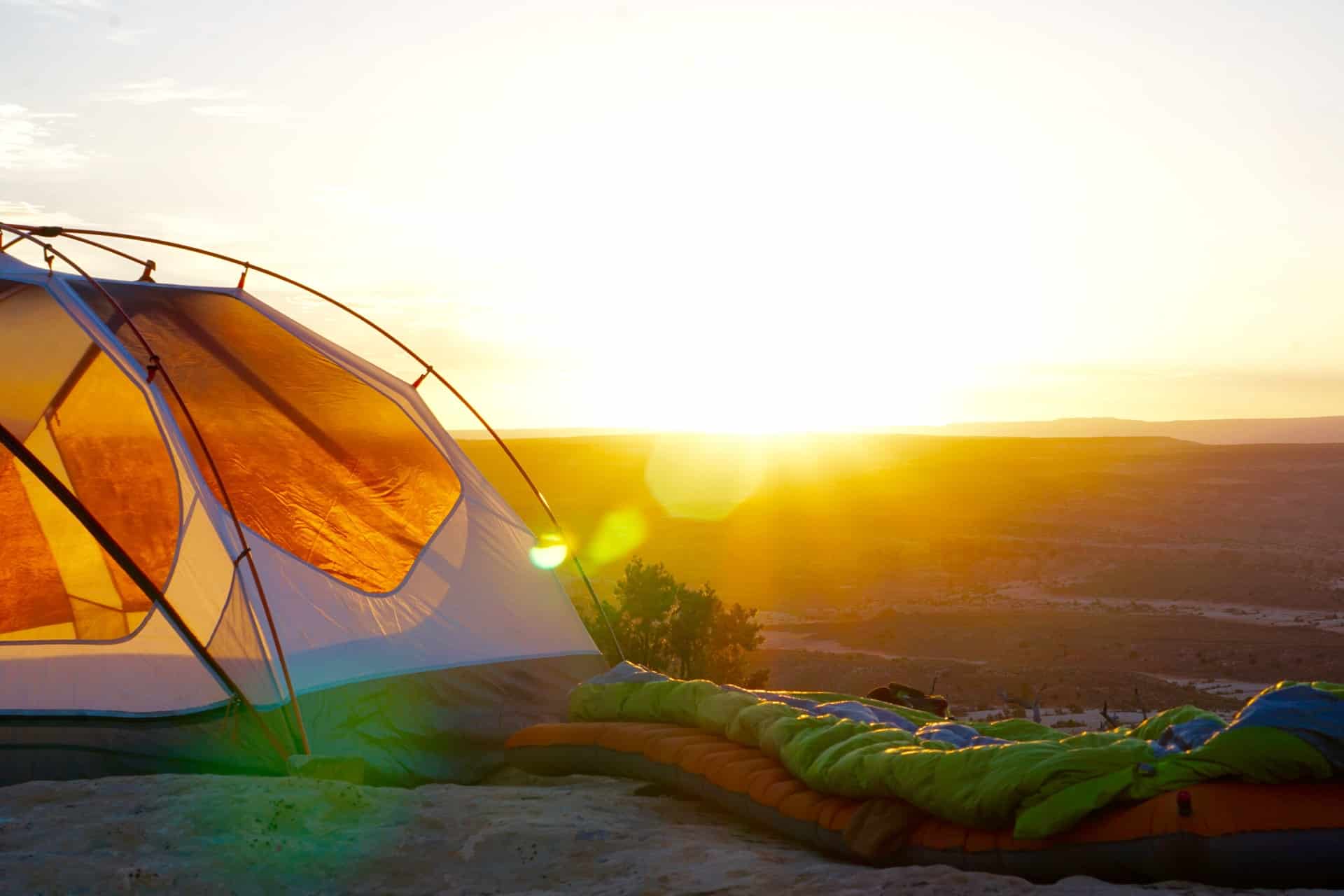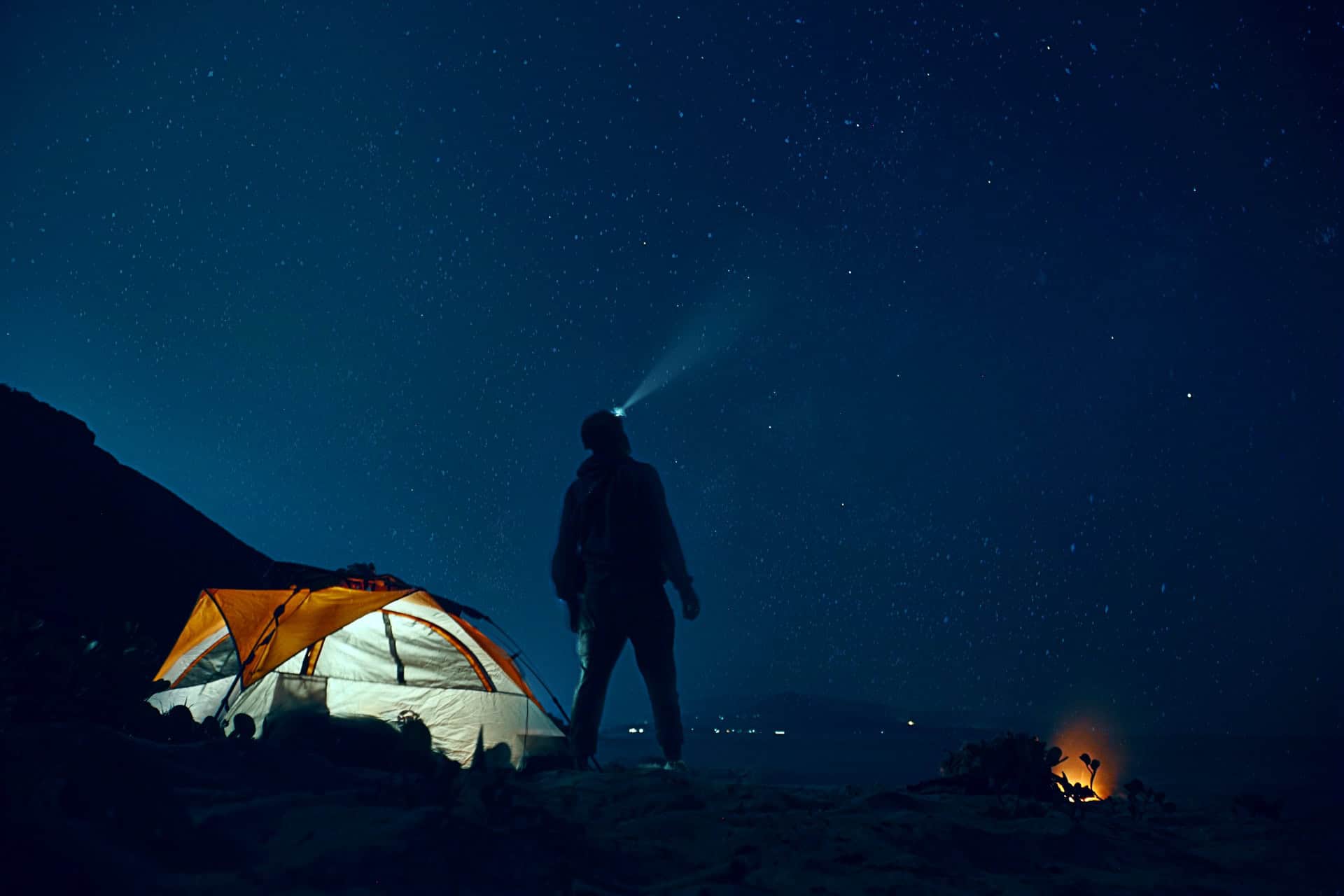Camping is one of the most enjoyable ways to spend weekends with close friends and family.
However, it's generally not something you do on a whim. You'll need to plan if you want to enjoy your camping trip to the fullest.
This can make it seem daunting, but if you're willing to invest in some camping supplies and equipment, you'll find that camping can be a safe and laid-back activity that doesn't require much effort.
To help you out, we will cover 12 of the most important camping essentials to carry with you.

Table of Contents
What to Bring Camping
1. A Good Tent
We could write an entire blog post about picking a tent, but here are some tips on choosing a good one to keep things simple.
Don't skimp on your tent. It's the thing that will keep you safe and dry when you're camping, so make sure that you invest a bit more into buying a high-quality tent.
Tents are rated for seasons. Pick the right tent for the time of year you plan to go camping.
Consider how much space you need based on how many people are coming with you.
Always look at reviews from experienced camping enthusiasts. Don't just look at Amazon reviews!
Your tent should be a sizable portion of your budget because it's one of the most important aspects of a successful camping trip.
If you don't spend more on a quality tent, don't be surprised if it collapses after the first night and ruins the entire trip.
2. Sleeping Options
You typically have a few sleeping options when camping, but sleeping bags and air mattresses are the most common.
A sleeping bag is the go-to because it's small, quick to set up, and takes up less space.
An air mattress will require an electronic air pump, and you'll also need blankets and pillows. However, the advantage is that it's much more comfortable and a closer experience than a real bed.
Whatever you choose, ensure it fits in your pack or vehicle so you don't run out of space for other things.
3. Cooking Equipment
“Cooking equipment” is vague, and the essentials you must take will generally revolve around your needs.
For example, if you plan to eat pre-packaged meals, you only need to boil some water, which simplifies things.
Some camping meals don't require extra utensils or cooking equipment; you can heat it with the supplied items or eat it cold.
However, if you plan to bring a vehicle and have plenty of space, you could take everything from a gas stove to pans and even fresh ingredients stored in a cooler.
It's down to personal preference and how much space you want to dedicate to food.
4. A Power Station
A power station is another item that is down to personal preference.
Some people enjoy having a fully charged power station with sockets and plenty of charging options, but it's not something you'll carry around in a backpack.
This is more for campers who will travel with several people and will have a car, van, or RV they can use to haul things around.
If you're running other electronics and have entertainment planned that uses electricity, then a power station is a must-have for camping in 2021.
However, it's OK to omit this item if you're trying to pack light or don't plan to use any electronics.

5. Power Banks
Camping in 2021 involves a smartphone. No matter what people say about unplugging and getting away from technology, not having a smartphone is a bad idea for first-time campers as it's essential for helping you stay safe.
A power bank or two ensures you can keep your phone charged to access its GPS for maps or even contact others should you be lost or in trouble.
Ensure you charge up your power banks before taking them out on a camping trip.
6. Cleaning Equipment and Supplies
Cleaning supplies are essential but often forgotten. Whether cleaning off some mud from your boots or having toilet paper, it's a good idea to carry a few basics to help you stay clean.
If you have plenty of space in your backpack or plan to travel in a car, you can take extra luxuries such as shower gel (especially if you plan to take a portable shower) and a spray bottle for cleaning your equipment.
However, if you're packing light, a pack of wet wipes should be enough.
Taking some antibacterial supplies can also be important, especially if you plan to travel and camp during a pandemic.
Hand wipes are good, and sanitizing gel can give you peace of mind when heading into a store.
7. Camping Chair
Camping chairs are surprisingly comfortable and can fold into a minimal shape, making them a great option even if you only have a single backpack.
Camping chairs can give you a dry surface to sit on, and it's generally a lot more comfortable than sitting on a log or the ground.
Even if you plan to be on your feet for most of the trip, a camping chair is still a great item and will add much more comfort to your trip.
8. First Aid Kit
We all pray that nothing goes wrong on our camping trips, but if somebody is injured or cut, it's a good idea to have a first aid kit with you to help clean wounds and patch up cuts.
First aid kits should also contain basic medication, such as painkillers, if someone feels unwell. Stomach medication can also help if you eat something bad.

9. Multitool or Swiss Army Knife
A small multitool or Swiss Army Knife is a small and helpful little tool to have around, thanks to all of its features.
Whether you need to cut something, open a bottle, trim your nails, or even tighten some screws, a Swiss Army Knife is incredibly convenient and something that you should always keep in your camping bag.
These are relatively inexpensive and will help you more times than you'll realize. It's worth investing in a good-quality multitool and even keeping a spare in your car.
10. Flashlight
A flashlight helps when the sun goes down, and you need a source of light so you can see what you're doing.
Using your phone or even your car's headlights might be tempting, but we highly recommend against those options.
Using your phone for a flashlight drains the battery, and your car's headlights can be overkill.
You might also want to consider some extra flashlight batteries from brands such as EcoGearFX.com to ensure that you can always keep it running.
While flashlights last a very long time on a single battery charge, having a spare or two for emergencies doesn't take up much space and can be very convenient.
11. Insect Repellent
Camping usually occurs in nature, so you will encounter a few bugs and insects.
This is just a natural part of camping, but there are plenty of ways to keep them at bay.
For starters, make sure you have some insect repellent to keep them away from your body, camping bag, and tent.
If you want a more drastic option, you can also have a net for your tent to filter out the larger bugs and insects.
If you're not keen on bringing chemicals with you, you can use natural insect repellents, such as lavender, lemon eucalyptus oil, and tea tree oil.
12. Sun Cream
Sun cream is the last essential that we'd recommend you take. Camping involves a lot of hiking and walking around, which means you'll be exposed to the sun for most of the day.
Keep a small bottle of sun cream for yourself, or bring a large one to share with your friends and family. This will help you stay safe from the sun and protect your skin during those long days.
_____
This story is brought to you in partnership with EcoGearFX.com.
Planning a trip? Go Backpacking recommends:
- G Adventures for small group tours.
- Hostelworld for booking hostels.
